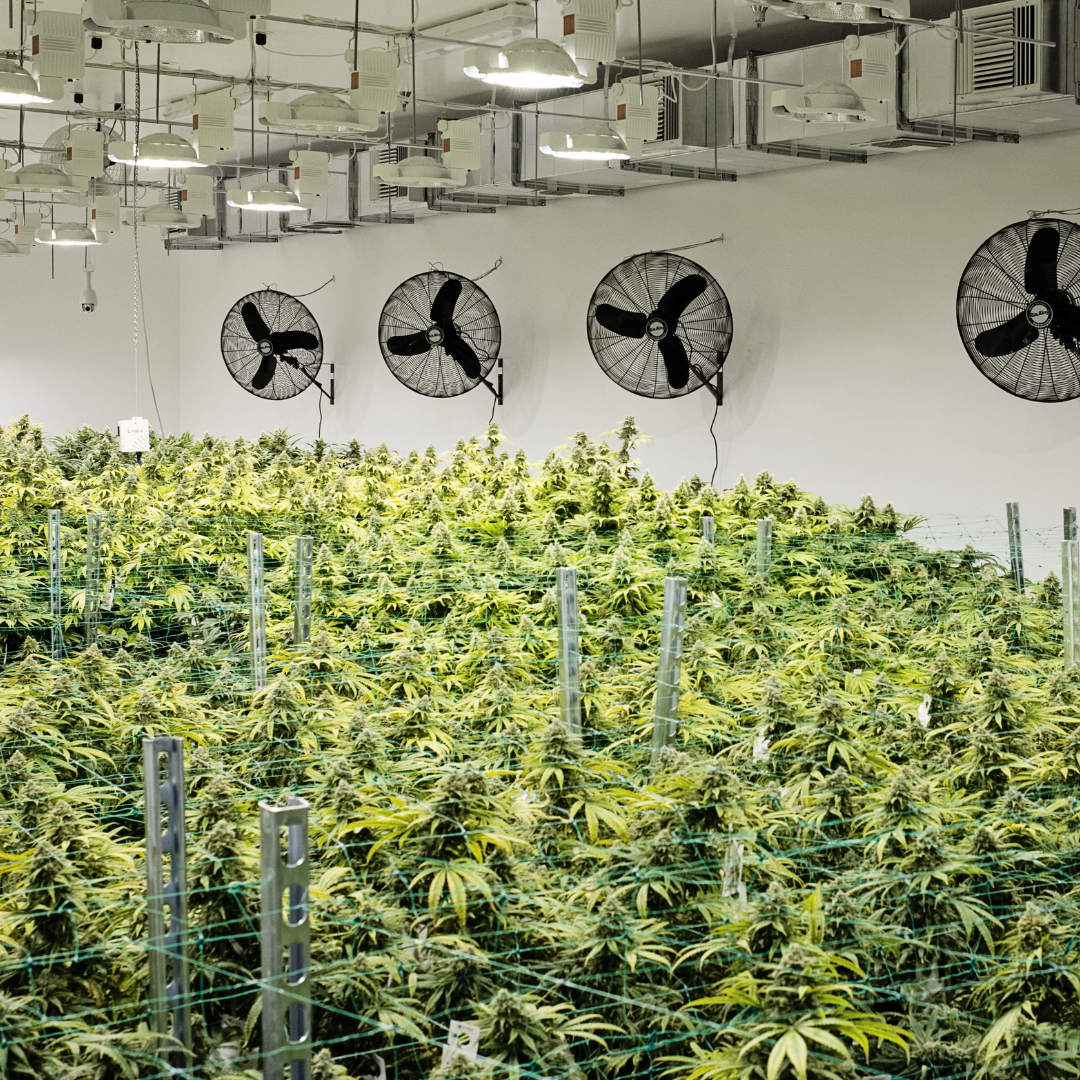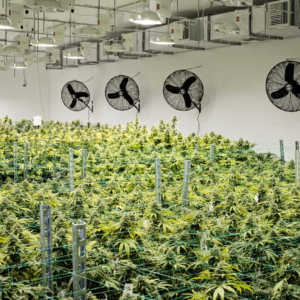Eliminating the Cannabis Cultivation Tax in California
Cannabis growers are rejoicing in California these days, after learning they’ll be paying fewer taxes and pocketing more profits.
Gov. Gavin Newsom signed a $308-billion state budget on June 30, for California’s regulated cannabis market, whereby the California cannabis cultivation tax was eliminated as of July 1.
The CA cannabis cultivation tax, which placed a $161-per-pound rate on licensed growers, was abolished via Assembly Bill 195 (34-0 vote) by the California Senate), which was attached to the state budget.
California Cannabis Cultivation License Holders:
Many California Cannabis Cultivation License holders are excited about this change, which should result in more retail opportunities and fewer taxes.
Graham Farrar, president of Glass House Brands, said; “It’s huge … I think we’d all rather have licensed products, but there’s only so much premium people are willing to pay. So, fewer taxes narrows that gap, so the licensed growers have a chance to be competitive with the folks who aren’t paying taxes.”
To learn more about the A.B 195 measures, the cannabis excise tax rate, and the CCIA additional measures in A.B. 195 read our blog on the CA Cultivation Tax.
Criticism of the CA Cannabis Cultivation Tax Change:
According to Politico, California Governor Gavin feels that the cultivation tax cut won’t be enough to boost embattled cannabis businesses.
State Sen. Steven Bradford (D-Gardena) echoed this criticism, saying that the deal offers equity businesses “meager crumbs with the hopes that they will remain quiet.”
“We’re going to continue to fuel the illicit market until we acknowledge that there’s over regulation, over taxation of something that we claim we want to see succeed, a legal cannabis market,” said state Sen. Scott Wiener.
What is the impact of eliminating the California cannabis cultivation tax?
The CA cannabis cultivation tax has been in effect ever since adult-use sales launched in 2018. This tax generated $500 million in state revenue. According to the tax data from California
Department of Tax and Fee Administration (CDTFA), the CA cultivation tax generated about $468 million through March 31, 2022. It also generated $32.7 million in the first 3 months of this year.
Now that the CA cannabis cultivation tax is gone, how will the state’s cannabis revenue continue to generate?
The answer is quite simple, according to industry leaders. These industry leaders are now expecting there to be an increased amount of involvement in the legal market, given the decrease in troublesome policies for growers and consumers.
Quite suddenly, the timing couldn’t be better if you’ve been thinking about applying for a CA cannabis license or opening a California Cannabis dispensary.
How does A.B. 195 Impact the cannabis excise tax rate (CA Cannabis Cultivation Tax)?
The CA cannabis cultivation tax has been a huge barrier to entry in California for outdoor growers, due to the higher rates and what their products are worth. On the wholesale side, however, greenhouse and indoor growers were less affected by the taxes, since their products were worth more (16% tax burden for a greenhouse vs. 32% for an outdoor grower).
In about 3 years, A.B. 195 will allow state officials to reconsider this excise tax, as well adjusting the rate. State officials are hoping this move will help generate an amount of revenue due to increased sales, even if the CA cultivation tax hadn’t been eliminated. The regulation stops the cannabis excise tax from exceeding 19% of all gross receipts from retail sales as well.
Assembly Bill 195 measures to maintain a 15% cannabis excise tax (moves the collection of that excise tax from distributors to point of retail sale by, Jan. 1, 2023). The tax reform included in the legislation will help brace the licensed industry.
The California Cannabis Industry Association (CCIA) Executive Director Lindsay Robinson said, “The survival of the regulated industry is vital to providing ongoing tax revenues for the state, and the advancement of public health and safety. Eliminating the cultivation tax is just one step towards stabilizing our industry but it’s an important one.”
What are the CCIA, additional measures in A.B. 195?
Minimum Baseline: Maintains the $670 million minimum baseline for Allocation 3 (tax revenue to environmental groups, youth prevention groups, and law enforcement) until 2028. It also sets aside $150 million in the General Fund to backfill any revenue loss associated with the zeroing out of the cultivation tax.
Economic Impact Study: A.B. 195 requires that an economic study be conducted to measure the impacts of tax reform on tax revenues.
Retail Access: Establishes a $20 million Cannabis Retail Access Grant Program to encourage cities and counties with existing bans on commercial cannabis retail to implement retailer licensing programs. Funding would be prioritized for jurisdictions that incorporate social equity programs.
Social Equity: Equity licensees will be able to retain 20% of the excise taxes they collect, which they can then reinvest back into their businesses. They will also be eligible for a $10,000 tax credit.
Tax Credits: $40 million in tax credits, of which $20 million will be earmarked for tax credits for qualified storefront retail (Type 10), and microbusinesses (Type 12). Likewise, $20 million in tax credits will also go towards cannabis equity operators. The bill allows qualified businesses to claim tax credits of up to $250,000 for qualified expenditures, beginning in the 2023 taxable year.
Enforcement: A.B. 195 also adds additional enforcement tools against the illicit cannabis market. Specifically, it states that a person who knowingly leases or makes available for use, with or without compensation, a property, building, room, space, or enclosure for the purpose of unlawfully cultivating, manufacturing, selling, storing, or distributing cannabis, is subject to civil penalties of up to $10,000 per day for each violation.
The bill also authorizes a county counsel to file a civil action on behalf of the state, relating to unlawful water pollution and unauthorized water diversions, due to unlicensed cannabis cultivation.
Labor Protections: The bill lowers the LPA threshold requirement from 20 to 10 non-management employees.
State Reporting Requirements: Imposes additional reporting requirements on the state Cannabis Tax Fund, which provides for greater accountability and transparency, so the industry and the public can understand how cannabis tax revenues are being spent.
How we can help you get a Cannabis License in California:
At Cannabis License Experts, we provide you with the guidance to plan your cannabis business, acquire funding, navigate the legal requirements, and acquire the appropriate cannabis license for your operations.
As the California cannabis industry develops, more and more licensed producers, cultivators, and retailers will be needed to meet the demands of consumers. Cannabis License Experts offers support from day one of starting your cannabis business, including strategic planning, floor plan preparation, site audits, SOPs, Preventive Control Plans (PCPs), and more.
Our Edibles Compliance division can provide you with a solid plan for your edibles business to help get your products on store shelves. Contact us today to discover how we can license and legalize your cannabis business to meet federal and state regulations. To learn more about the California Cannabis License Types click here:



